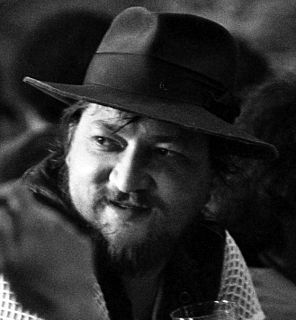A Quote by Rainer Werner Fassbinder
Yes, actually ever since I saw his films and tried to write about them, Sirk's been in everything I've done. Not Sirk himself, but what I've learned from his work.
Related Quotes
I know a bit about his [Sirk] life, but it's more about his style than biography. He was European and came out of a theater background, and could easily be defined as 'Brechtian.' He was expressionistic in his films, and was an example of those intensely intellectual artists who ended up working for American studios, and was handed the Ladies Home Journal and asked to adapt the stories for the screen. He found ways to use his artistry to make them interesting and nuanced, while critiquing American values in the process.
The man who works recognizes his own product in the world that has actually been transformed by his work. He recognizes himself in it, he sees his own human reality in it he discovers and reveals to others the objective reality of his humanity of the originally abstract and purely subjective idea he has of himself
Was his life nothing? Had he nothing to show, no work? He did not count his work, anyone could have done it. What had he known, but the long, marital embrace with his wife. Curious, that this was what his life amounted to! At any rate, it was something, it was eternal. He would say so to anybody, and be proud of it. He lay with his wife in his arms, and she was still his fulfillment, just the same as ever. And that was the be-all and the end-all. Yes, and he was proud of it.
I would say that I learned that the heartbreak wasn't as much about me as the fact that my partner wasn't right with himself. I see where his life has taken him, and realize that the handwriting was on the wall. There were things that I had blamed myself for, but it was really more about his choices, his needs and his journey as a person. His desire for too much of everything made it a challenging relationship.
As a child, he had hardened his heart and learned to take their punches. He had learned to spit back and take down anyone who cast a jaundiced eye or who made a comment about either him, his mother, or his sister. He’d told himself that he didn’t need anyone’s love or caring. And so he had learned to live like a feral animal, always ready to strike out when someone tried to touch him.
In a community of human beings working together, the well-being of the community will be the greater, the less the individual claims for himself the proceeds of the work he has himself done; i.e., the more of these proceeds he makes over to his fellow workers, and the more his own requirements are satisfied, not out of his own work done, but out of work done by the others.
The first time I saw Douglas Sirk was in college. I didn't encounter him on the late, late, late show like a lot of people; people a little older than me, maybe. But I saw him already as someone to take special note of in an academic context in college. I was immediately in a state of visual splendor.
From the moment I met Martin Scorsese in 1962, he educated me about the films that had taught him so much about filmmaking. He had been deeply affected, even as a child, by great films that stretched his mind and struck into his heart, and he was eager to share them with friends and people who worked with him or with actors who were in his films.
The fact that labour is external to the worker, i.e., it does not belong to his intrinsic nature; that in his work, therefore he does not affirm himself but denies himself, does not feel content but unhappy, does not develop freely his physical and mental energy but mortifies his body and his mind. The worker therefore only feels himself outside his work, and in his work feels outside himself.


































